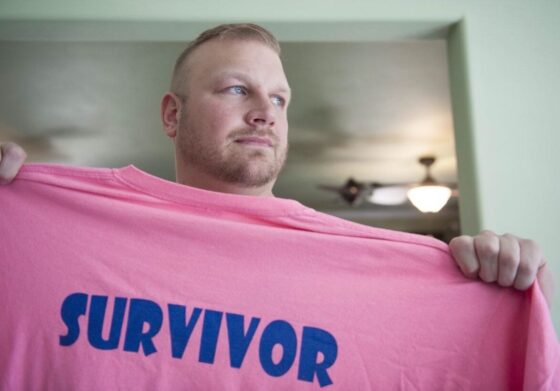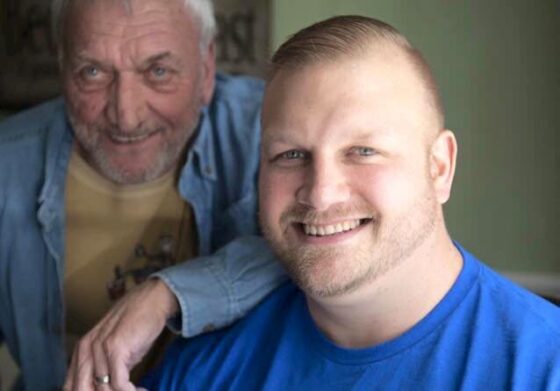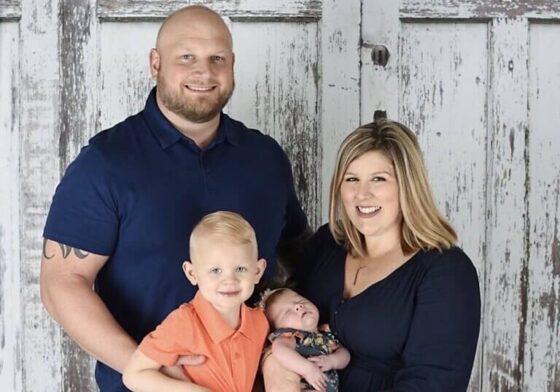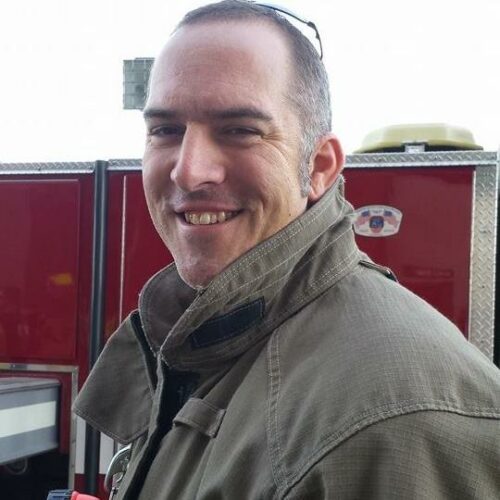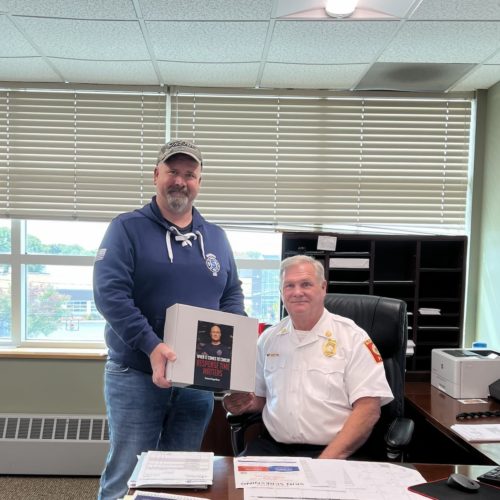I was 29 years old and invincible. I had a wife, a house, a career and a passion for going to the gym. I also had a secret, something I was too embarrassed to tell anybody and desperately tried to hide, bathroom issues.
The first symptom was blood in my stool, which I chalked it up to hemorrhoids from my athletic lifestyle. I was at the gym all the time and doing heavy weightlifting. Then I started having stomach pain, which I blamed on my nights out with friends and the food and drink that went along with those.
Soon the symptoms started to affect my work day. I would make trips back and forth to the bathroom and never be able to go. There would be days where I had sudden diarrhea, followed by extreme constipation. I was so ashamed of these health changes and didn’t know what to do.
I thought if I stopped eating so much I wouldn’t have to deal with the bathroom, so I changed my eating habits. My friends commented on the 40 pounds I lost, complimenting me on my exercise, but I knew it was because I was trying to deal with embarrassing health changes.
Over the next year and half, the symptoms became more severe and persistent, but I didn’t know what to do. Finally, I decided that I’d had enough. I was no longer concerned with trying to hide the changes. I just wanted to find out what was going on. My family doctor ran some tests, and didn’t find anything wrong. But I knew my body, and I knew this wasn’t normal for me, so I insisted we keep looking for answers.
One day, the stomach pain got so bad that I had to go to the emergency room, and the ER doctor got me an appointment with a gastroenterologist for the next day. The specialist thought it might be Crohn’s disease, but did some tests to be sure. Finally, when the results came back I had an answer: stage 4 colorectal cancer.
Treatment included chemotherapy, radiation and surgery. During initial treatment, it was discovered that the cancer was also in my liver, blood, and lymph nodes, which meant more surgery and a longer recovery. I ended up having an ileostomy bag and aggressive chemotherapy for an additional six months because of how far the cancer had spread before it was diagnosed.
“If you’re having symptoms, get them checked out. I now know that those “embarrassing secrets” were actually clues.”
The treatment was successful, but my story doesn’t end there. Six years later, I noticed some strange symptoms: My voice was suddenly very raspy and I was wheezing frequently. I joked that it sounded like I drank a bottle of whiskey and smoked a carton of cigarettes, but I knew this was another health change.
I went to the doctor and was treated for sinusitis with a surgery. A few weeks later, the raspy voice returned, and I went to another doctor who did a thorough scan of my neck, head and chest. There was a large nodule in my throat, and the doctors had to remove my thyroid. The diagnosis this time was medullary carcinoma, a form of thyroid cancer. But the thyroid surgery didn’t solve all my problems.
I had simultaneously been suffering from back pain for about a year. Soon, I began losing function of my left leg, feeling pins and needles, and having trouble walking and carrying things at the same time. I was used to bench pressing 500 pounds, and now I couldn’t even walk. Eventually, my doctors ordered a PET scan, which revealed a lesion on my back. Further testing and surgery gave more bad news: The tumor was engulfing my spine, and it was Ewing’s sarcoma. I am currently undergoing chemotherapy, and will start radiation after that.
Looking back on everything I’ve been through, it comes down to this: If you’re having symptoms, get them checked out. I now know that those “embarrassing secrets” were actually clues. My body was trying to tell me something. Don’t be afraid to seek medical attention and advocate for yourself when you know something isn’t right, even when the “something” is embarrassing. This is not an “old person’s disease”—cancer does not discriminate based on age, lifestyle, or any other factor. If you’re having symptoms, get checked out. It could save your life.
Symptoms
Colorectal Cancer
- blood in stool
- stomach pains
- diarrhea
- constipation
Thyroid Cancer
- sudden raspy voice
- frequent wheezing
Ewing’s Sarcoma
- loss of function in leg
- numbness in leg
- difficulty walking and carrying items
